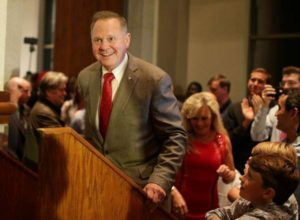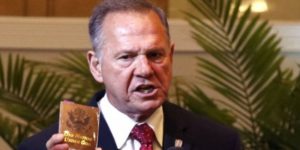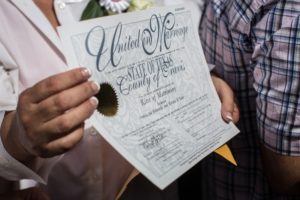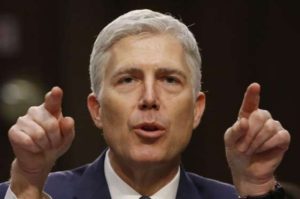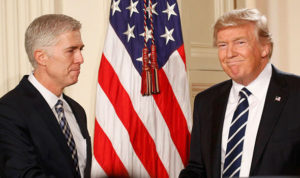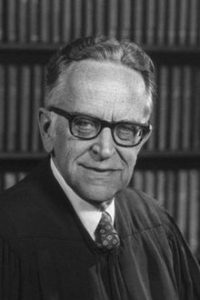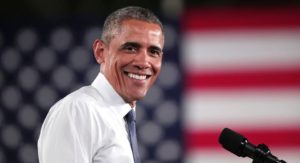
This is it, dear reader. The hand-off from one president to another is upon us. With that, I believe it is time to assess the performance of the guy who’s leaving office and perhaps try to compare what I believe he accomplished to what was projected of him when he took office.
Bear in mind, bias is implicit in everything anyone says … particularly when it regards political matters. I have my bias, you have yours. Some of our bias might mesh. Much of it might not.
How has Barack Obama done as the 44th president of the United States of America? I’ll give him a B-plus, which is a pretty damn good grade, given what he faced eight years ago.
Let’s start with the economy. We were shedding three-quarters of a million jobs each month when the president was sworn in. What did he do? He got his then-Democratic Party majority in both congressional chambers to enact a sweeping stimulus package. It pumped a lot of money into the economy. It helped bail out major industries, such as the folks who make motor vehicles. Banks were failing. The failures tapered off and then ceased.
Was this a bipartisan effort? Hardly. Republicans declared their intention to block everything he tried. The economy would collapse even faster, they said. The stock market, which had cratered, would implode. What happened? The Dow Jones Industrial Average has tripled since then.
Job losses? They disappeared, too. In the eight years of the Obama presidency, the nation has added 11 million or so non-farm-payroll jobs. Unemployment that peaked at 10 percent shortly after Obama took office, now stands at 4.7 percent.
Has the recovery been even? Has it been felt across the spectrum? Not entirely. It is that unevenness that sparked the populist movement led in large part by none other than the master of decadence Donald J. Trump, who parlayed people’s fear into a winning presidential campaign strategy.
All in all? We’re in far better shape today than we were when Barack Obama took office.
National security anyone?
OK, let’s try these facts.
A SEAL team killed Osama bin Laden in May 2011; we haven’t been victimized by a terrorist attack in the past eight years; we have killed thousands of terrorists around the world as our global war has continued; Obama and his diplomatic team negotiated a deal to prevent Iran from developing an nuclear weapon.
Yes, North Korea continues to pose threats. The president erred in saying he would act militarily if Syria crossed a “red line” by using chemical weapons and then failed to act on his threat. We did a poor job of managing the Arab Spring that erupted in Libya and eliminated Moammar Gadhafi.
Immigration reform remains in the distance. Barack Obama has been all-time champion of deportation of illegal immigrants, despite complaints from his foes that he is soft on that issue. And, of course, I believe he is correct to suggest that building a wall is contrary to “who we are as Americans.”
In an area related to national security, I would like to point out that we’ve all but eliminated our dependence on fossil produced in the Middle East. I don’t want to overstate the president’s role here, as much of that is due to private industry initiative. Federal tax breaks, though, have made alternative energy production more feasible, which has reduced our dependence on fossil fuels.
Domestic issues?
Obama’s foes said he would launch raids on Americans’ homes, seeking to take away our guns. It hasn’t happened. There was never any realistic threat that it would.
The president did a 180 on gay marriage and the U.S. Supreme Court — citing the equal protection clause in the 14th Amendment to the Constitution — made same-sex marriage legal in all 50 states.
And, oh yes, the Affordable Care Act has provided health insurance to 20 million citizens who couldn’t afford it otherwise. The ACA is in jeopardy as GOP members of Congress want to repeal it. They don’t have a replacement bill lined up. Obama has said he’d support any improvement to the ACA that would come forth. Is it perfect? No. The president admitted this past weekend that he and his team fluffed the launch of healthcare.gov, which was a huge error.
Barack Obama didn’t bridge the racial divide that splits Americans. The first African-American president perhaps misjudged the national mood; maybe he was too hopeful.
However, that this brilliant man was elected president in the first place in 2008 with substantial majorities in both the popular and Electoral College votes — and then re-elected — tells me that we’ve come a long way from the time when even his candidacy would have been considered unthinkable.
I’m proud to have been in his corner for the past eight years. I haven’t agreed with every single decision he has made … just the vast majority of them. He has made me proud, too, at the way he has conducted himself and the way his family has adjusted to living in that bubble known as the White House.
Millions of Americans will wish him well as he and his beautiful family depart on Friday.
As for the future, well … we cannot predict it with any more certainty than many Americans did when Barack Obama took the stage. Let’s just hope for the best.
